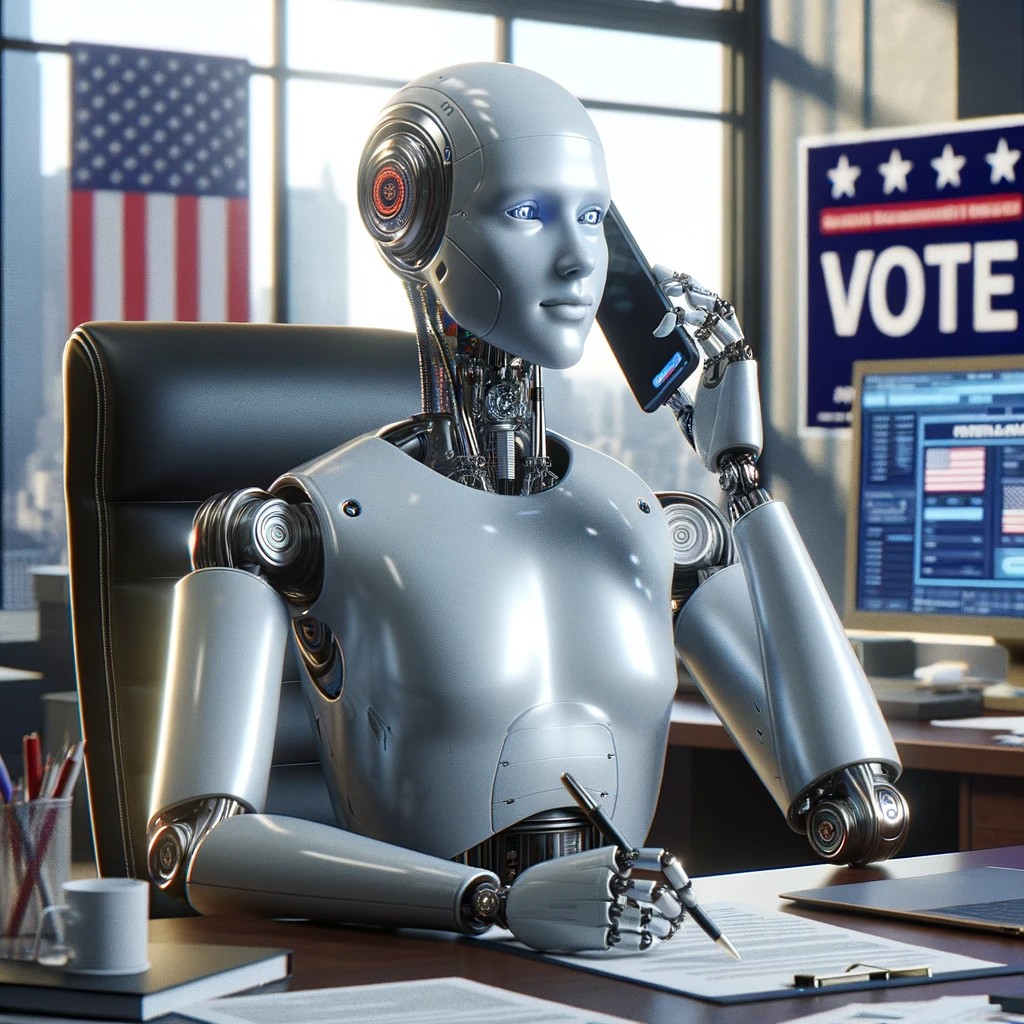In a startling development leading up to New Hampshire’s primary election, the state’s attorney general’s office is actively investigating an alarming incident involving an AI-generated robocall that replicated President Joe Biden’s voice. The call, sent to multiple voters on Sunday, has raised concerns of potential voter suppression as it falsely advises voters to withhold their votes for the primary, claiming a link to the upcoming general election. Attorney General John Formella has urged voters to disregard the contents of the call entirely, marking a concerning misuse of artificial intelligence in the electoral process.
Misleading robocalls target Biden supporters
The recorded message, resembling President Biden’s voice and using his signature phrases, specifically targets voters in New Hampshire. It falsely asserts that voting in the primary could negatively impact the general election, a claim debunked by the state’s electoral process.
The call, which originated from the personal phone number of Kathy Sullivan, a former New Hampshire Democratic Party chair, has triggered a formal complaint to the attorney general. The use of generative AI in this context raises questions about the potential impact on voter behavior and the overall integrity of the electoral process.
Kathy Sullivan, in her statement, describes the call as outright election interference and an attempt to harass voters planning to write in Joe Biden on Tuesday. The attorney general’s office, responding to the incident, has called on those who received the call to report it, emphasizing the need for vigilance against such deceptive practices.
Unprecedented threat of AI-generated election disinformation
As the investigation progresses, experts express growing concerns about the broader implications of using generative AI for disinformation in elections. This incident serves as an early warning for what 2024 might hold, with the potential for advanced deepfake technology to manipulate public opinion. The concern is not limited to a single state or election; rather, it reflects a global trend of increasing reliance on AI for misinformation campaigns.
Generative AI deepfakes have already made their way into the political landscape, appearing in campaign ads during the 2024 presidential race. Hany Farid, an expert in digital forensics at the University of California, highlights the potential weaponization of generative AI in upcoming elections, emphasizing the need for heightened awareness and countermeasures.
David Becker, a former US Department of Justice attorney and election law expert, notes the challenges in discerning the intent behind the New Hampshire call. Whether aimed at suppressing votes or sowing further distrust in the democratic process, the incident underscores the urgency of addressing the broader issue of misinformation and disinformation in elections.
As the investigation delves deeper into the origins of the AI-generated robocall, the incident prompts a critical examination of the potential threats posed by generative AI in future elections. How can election authorities adapt to the evolving landscape of disinformation and emerging technologies to safeguard the democratic process? The unfolding events in New Hampshire underscore the need for a proactive approach to mitigate the risks associated with the misuse of AI in electoral campaigns.





